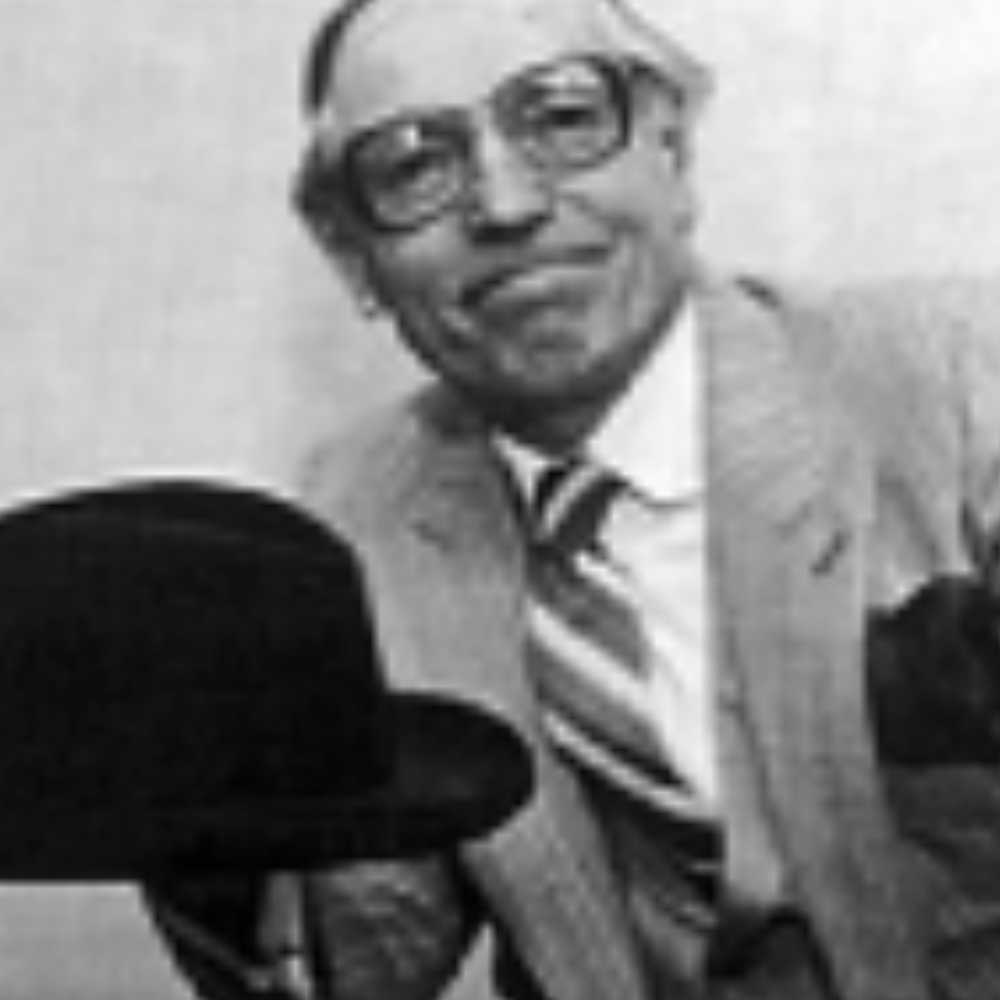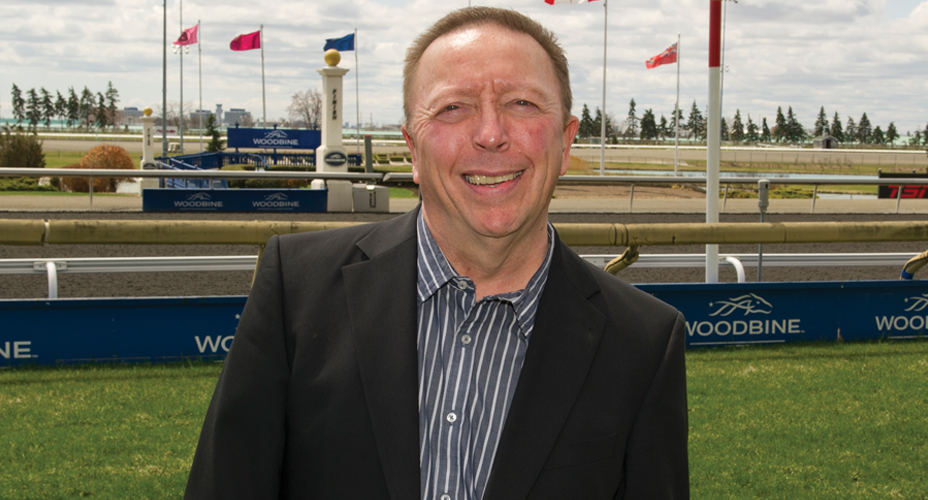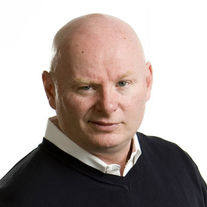Actions speak louder than words, even if those words are splashed across the pages of the city’s most widely read sports section. That’s why no matter how critical his columns, sportswriter Steve Buffery always shows up in the clubhouse the next day. “I learned that right away,” he said. “I think it makes you be a little more fair, because if you’re going to throw punches you have to face the music. That’s very important.”
Buffery has thrown more than a few verbal jabs over a long career that has earned the Etobicoke native three Dunlop Awards for sportswriting, a National Newspaper Award nomination, the 1996 Sportswriter of the Year award from the Sports Federation of Canada, and plenty of emails from readers telling “Beezer” just what they think of his opinions. “I get lots of emails from guys who either like me or don’t,” Buffery said, explaining that as a columnist he tries to have a unique voice and evoke a reaction, whether positive or negative. “I can be sarcastic. If I go after somebody or a team, I’m not always subtle,” he laughed. “One thing I can’t stand in this business is if you read a column and it doesn’t do anything for you—make you think, get a rise, something. To me, sports is supposed to be fun, and blandness is the worst thing ever.”
Blandness has never been Buffery’s problem. Whether writing his self-deprecating humour column, “Leave it to Beezer,” or offering his take on amateur sports, basketball, hockey, baseball, horseracing, boxing, martial arts and the business of sport, his readers always come away informed and entertained.
Buffery wrote short stories growing up near Centennial Park in central Etobicoke and was an avid reader of the Toronto Star and Toronto Telegram sports sections. As the only “sports fanatic” in a family of eight kids, young Steve had his own subscription to Sports Illustrated. “I just devoured everything. Sports was all-consuming,” said Buffery, who followed sportswriters like other kids do athletes. He was star-struck to later meet longtime Star sportswriter Milt Dunnell, and cites Jim Hunt, Trent Frayne, Scott Young and Joe Falls of the Detroit Free Press as other early influences.
He went to high school at Vincent Massey Collegiate, save for his final year when he transferred to Mimico High to continue his wrestling career. After graduation he started working full-time at the Valhalla Squash Club, tending bar and doing odd jobs. That year off could have become a permanent break from higher education had his mother Verna not suggested that Steve enrol in the journalism program at Humber College. Buffery was skeptical. “I wasn’t keen on making (writing) a career,” he said. “I never would have done it if my mom hadn’t suggested that.”
He soon found that he loved covering the Humber Hawks hockey team coached by Pete Maybury. “I had a lot of fun doing that,” Buffery recalled. “I always tell people that was my first beat.” He left Humber before finishing the three-year program to take a job as sports editor of the Aurora Banner, a community newspaper. He was hired on the spot—not the first time an editor would snap him up after one short interview. Thrown into the fire of a busy newsroom, Buffery honed his writing while getting up to speed on the finer points of layout and photography. “I had very little experience doing anything but writing, but it was unbelievable how fast you learn those things,” he said of a job that demanded long hours at little pay but provided “an unbelievable learning experience.”
He enjoyed covering the Aurora Tigers, the local junior hockey team, and taking his first crack at feature writing with a profile of national team skier Karen Stemmle.
He made his homecoming when his editor, the late Ron Wallace, was transferred to head the Etobicoke Guardian’s sports department and brought Buffery along as a reporter to work alongside Rob Longley, a former high school classmate and future colleague at the Toronto Sun. “I was happy to come back to my stomping grounds,” Buffery said.
Unbeknownst to Buffery, his wife at the time sent in his resume to the Sun. Sports editor (and Etobicoke Sports Hall of Fame inductee) George Gross called him in for a chat about moving over to the daily. “He talked to me for five to seven minutes, I swear to you, and he hired me,” Buffery said. He joined the Sun in 1985, part of a dynamic young sports department whose members were famous for livening up the press box. “The Sun sports department is known to be really close,” Buffery said. “We’ve always had this underdog thing about us—I think it’s a tabloid thing. We stick together.” Everyone in the department had a nickname; Buffery’s was inspired by his former Guardian column “The Buffer Zone,” which his new colleagues shortened to “B Zone” and finally “Beezer.”
Buffery has witnessed many iconic sporting moments, listing as highlights Donovan Bailey’s record-breaking 100-metre run at the 1996 Atlanta Games, wrestler Daniel Igali’s gold medal in Sydney four years later, and being ringside when boxer Mike Tyson chomped on Evander Holyfield’s ear. But those famous moments aren’t what stick in his mind, Buffery said. “My favourite things I’ve ever done, my personal favourites, are feature-type ones that had nothing to do with winning a gold medal.”
Perhaps his best feature was written after travelling with Canadian hockey player Vicky Sunohara to visit her ancestral home in Japan after the 1998 Nagano Games. The women’s hockey team had just lost the gold-medal game to their rival Americans. “She was so disappointed from not winning the gold that she didn’t want to do it,” Buffery recalled. But her family in the small village of Ueda-shi prepared a banquet and greeted Sunohara with such warmth that she began to cry. “Vicky Sunohara’s Olympic journey had become joyous and beautiful once again,” Buffery wrote of that special meeting. “Her tears were of happiness and the silver medal worn around her neck suddenly didn’t seem so meaningless, not with all the love and joy flowing through the room. Her once heavy heart was now glowing.”
“It was the best thing at the Sun that I’d ever experienced,” Buffery said. “I wish I could do that every day, but you can’t.” After covering the Olympics and amateur sports for 15 years, Buffery still has a soft spot for the industry’s unsung heroes. “The most intriguing athletes are high-level amateurs and Olympians,” he said. “I’ve found that they’re just so happy to talk to the media, because mostly they get ignored.”
After seven years on the Raptors beat and a year covering the Leafs, “Beezer” is again a general sports reporter, with a focus on the Blue Jays. The challenge, he said, in a time of shrinking newsrooms and vanishing beats is to keep on top of many different sports in order to write credibly about them. “That’s the hardest thing,” he said. When covering baseball, he doesn’t go into the clubhouse to write a pre-determined story. “I’ll






